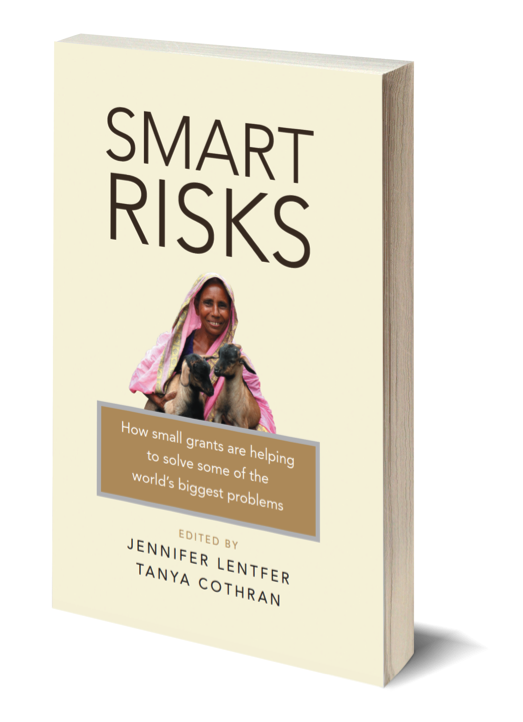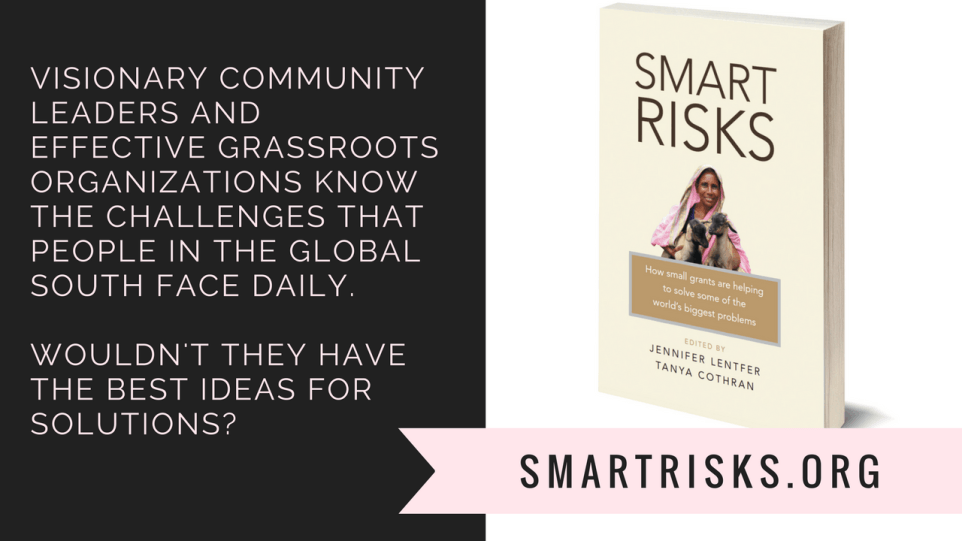 What is a smart risk?
What is a smart risk?
A smart risk is investing relatively small amounts of money in effective, visionary grassroots leaders, organizations, and movements.
People are the experts in their own lives. Everyday people have the most important knowledge, ideas, energy, and human resources to address the immense and complex challenges associated with global poverty and injustice in their contexts.
Investing financial resources with people who already are doing something to address these challenges is a smart risk.
Why are “smart risks” important? And different?
Smart Risks builds on the dynamism, self-determination, ingenuity, and voluntary resources that community groups are able to generate. A “smart risks” approach to grantmaking puts power back in the hands of marginalized people and communities.
If I want to take “smart risks”, how do I find effective community-based groups in the Global South?
The organizations featured in the book, Smart Risks: How small grants are helping to solve some of the world’s biggest problems, have varying approaches – from word-of-mouth recommendations to formal open and publicized Request for Proposals. The accompanying due diligence processes are crucial for identifying groups that are embedded in the community (not just paying lip service on paper). However, the organizations are careful not to over-burden grant seekers, so that new and effective groups can break through the glass ceiling of professionalized aid/philanthropic grantmaking practices.
Isn’t it hard to evaluate small grants?
The search for evidence (or proof that what we’re doing is making a difference) has become ingrained in almost every aspect of grantseekers’ and grantmakers’ day-to-day work. Obviously no one wants to see resources squandered.
Embracing uncertainty can allow local solutions to emerge that fall outside strict M&E frameworks. Taking smart risks requires appropriate levels of monitoring and reporting that are commensurate to the resources invested, as well as a system for flagging issues early on. It means knowing when to stay even though a partner is struggling, and when to leave if the partner is failing.
Most importantly, taking smart risks can enable grantees to define success on their own terms. Frankly grantmakers can afford to define “success” differently when there’s less money at stake. Relatively small grants allow for learning and failure as a natural – and even expected – part of how leaders, communities, organizations, and movements evolve. Specific practices like oral reporting can support grantees to share achievements and challenges in ways that aren’t solely about quantifying success in outsiders’ terms.
I work for a large organization that does not make small grants, how can I take more smart risks in my work?
Almost every organization working internationally is led by values that uphold partnership and seek to address power imbalances. The reality of institutional life and donor requirements often impede the ability of individuals within those organizations to suggest new ideas or ask questions that highlight where efforts fall short.
The most important thing for you to know is: You are not alone.
Showing solidarity with your partners working on the ground in every way that you can is a smart risk. Asking why so much of the budget goes to technical consultants, wondering aloud if the grant application process can be streamlined, suggesting that a small grants function be included alongside a larger project proposal, or partnering with international small grantmakers – all are smart risks. And they are worth taking.
***
Related Posts
What’s so “risky” about funding at the grassroots level?
Rigorous humility: Seeking a healthier relationship with results in 2018
Why I wrote about “smart risks” in philanthropy and why I would frame it differently now

